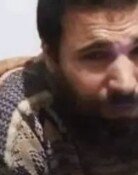[Editorial] President Made Inadequate Comment on PTCSD
[Editorial] President Made Inadequate Comment on PTCSD
Posted July. 30, 2004 21:54,
I have to say that the conclusive remark made by President Roh Moo-hyun on the activities of the second Presidential Truth Commission on Suspicious Deaths (PTCSD) was against the peoples sentiments and the principles of law.
President Roh said that he respects PTCSDs independent power and also said that whether or not it is related with democratization movements, if there was a wrongful exercise of public power to invade constitutional rights, it should be investigated and improvements should be made (in legislations and systems) to reflect such changes accordingly. It is true, as he said, that the order in a community cannot be maintained when public power exercised by the government loses its legitimacy.
However, the issue that has become a controversy is the PTCSDs decision to take unconverted long-term prisoners as contributors for democracy. This lies clearly outside of our existing law. According to the special law to investigate suspicious deaths, suspicious death means one related to democratization movements. The democratization movements, mentioned here, means activities that resisted authoritarian controls, contributed to the establishment of democratic constitutional order and to the recovery of peoples freedom and rights, since September 7, 1969 (Article Two of the Compensation Law regarding Democratization). Therefore, it is a clear abuse of authority to decide the unconverted long-term prisoners as contributors to democratization.
President Roh should have pointed this out first. He should have expressed regret, acknowledging that the prisoners were not objects of the legal investigation, even though the decision had good intentions. However, he emphasized the wrongful exercise of public power only to leave the nation still in worries and confusion. The same logic applies to the incident of when a person who was imprisoned for espionage activities became one of the committee members and investigated our military generals. It is hard for our nation to accept this situation; therefore, there should have been at least one word of explanation about this.
Instead, President Roh said, It seems that they are attacking the committee in order to attack me. He also said, We need to set our history straight. This has been delayed since the dissolution of the Special Investigation Committee of Anti-National Activities. It is hard to be persuaded by him. I am concerned and wondering why he sees everything as confrontation. If he regards even the demand asking to clear the peoples worries on the overstepping activities of the PTCSD as a resistance by those with vested interests, how can we call our president an arbitrator of social conflicts?







